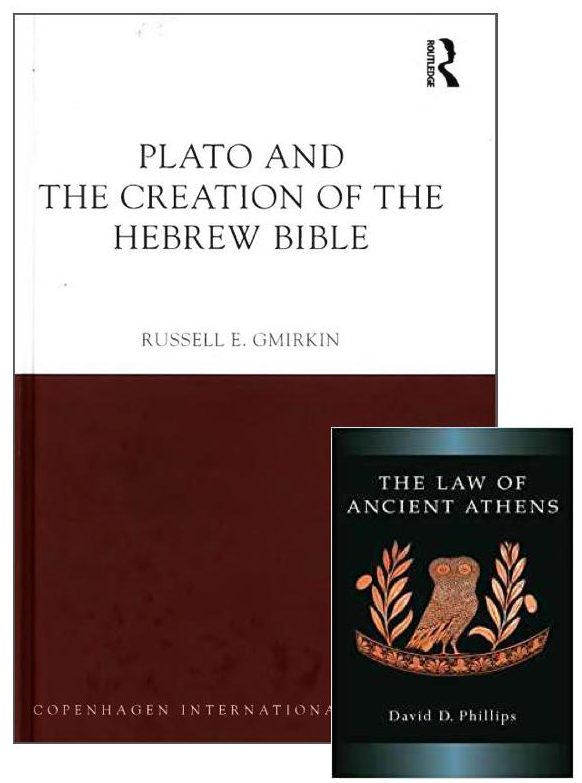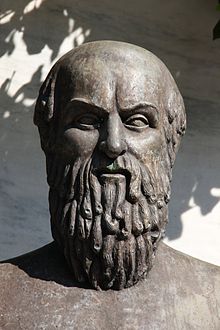Continuing directly on from my previous post I address here the two most well-known Athenian trials that mirror the Pentateuchal laws against private and innovative religious practices and deities.
We saw that biblical law condemned all worship that was not centred on the official public shrine or temple. Any form of insult towards the gods or violation of formally ordained rituals regarding offerings, sacrifices, etc was also condemned, often with the death penalty.
Interestingly we find records of the actual carrying out of these kinds of laws in fifth and fourth century BCE Athens.

415 BCE, mutilation of herms and the profaning of the Mysteries
In a single night all the stone herms standing in Athenian doorways and temples were mutilated. The perpetrators were unknown.
Tension was doubly high because Athens was about to send a naval expedition to Sicily in an attempt to turn the tide of their war with Sparta and the desecration was, so the historian Thucydides tells us, both an ill-omen and part of a political conspiracy against the state.
Pleas went out for anyone with any information at all to come forward. The only respondents were resident aliens and slaves who testified about some earlier desecrations
and also about the performance of the Mysteries in private houses . . . .
The scandal of sacrilege was avalanching on the eve of a vital military campaign and fears of anti-democratic traitors seeking to subvert the government.
Accusations flew and informers (true or false) came forward when promised immunity. Many were denounced for the mutilation of the herms and imprisoned. Thucydides again,
as for the accused, they held trials, and they executed all those who had been arrested and sentenced to death those who had fled, publicly offering money to anyone who killed them.
Enemies of a key political and military figure leading the Sicilian expedition, Alcibiades, sought to bring his career to an end by putting him on trial for performing private ceremonies of the Mysteries. Recall the requirement that honest worship be held in public according to set rituals at designated temples. Alcibiades was convicted though absent from the court and sentenced to death.
The term for his being charged for such a crime was eisangelia that is translated as “impeached”. Gmirkin discusses such “religious crimes” as tied up with legislation relating to treason against the state. And that’s how such deviations from socially sanctioned worship were treated in Athens — as threats to the welfare and survival of the political order of the state.
Specifically, Alcibiades was guilty of
- imitating the Mysteries and showing them to his companions in his own house,
- wearing a robe of the sort that the hierophant wears when he shows the sacred things,
- and by naming himself hierophant
- and by calling his other companions initiates
in violation of the lawful practices and rules established by . . . the priests of Eleusis. (Plutarch, Alcibiades, 22.4-5)
For those not aware of the story Alcibiades escaped from the Athenians to avoid execution.
One person who was arrested for both the mutilation of the herms and violation of the Mysteries but avoiding the death penalty when he turned informer was Andocides. He spent twelve years in exile but on his return was again accused and facing the death penalty because he “had illegally placed a suppliant-branch in the … temple of Demeter and Persephone in Athens.” In one account,
he has come into our city, sacrificed at the altars where he was not permitted, attended the sacred rites concerning which he had committed impiety [êsebêsen], entered the Eleusinion, and washed his hands with the holy water.
Andocides conducted his own defence and was acquitted.
When we read in the Bible of priests being struck dead for presuming to offer the wrong sort of fire in the temple, or of kings being condemned and cursed for offering sacrifices only certain priests were entitled to make, we can imagine the ancient Athenians thinking such legislation as quite appropriate for another god.
A better way?
Does anyone else see shades of political show trials in modern times? We can well imagine the atmosphere of fear, of informers, — and perhaps we need to pinch ourselves to realize that this was a demonstration of what the reality of the laws of Exodus, Leviticus and Deuteronomy would have meant.
Plato, however, after witnessing the execution of his teacher Socrates in this religious-political atmosphere, wrote what he considered would be a fairer refinement (or more just application) of such laws. We will look at his description of more “ideal legislation” and its similarities with the Pentateuch in another post.
Which brings us to the most famous of all victims of a law forbidding the introduction of a new god…… Continue reading “Socrates as Anti-Hero according to Biblical Law”


